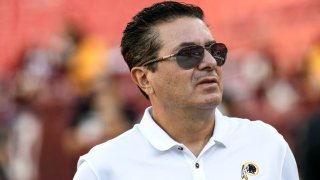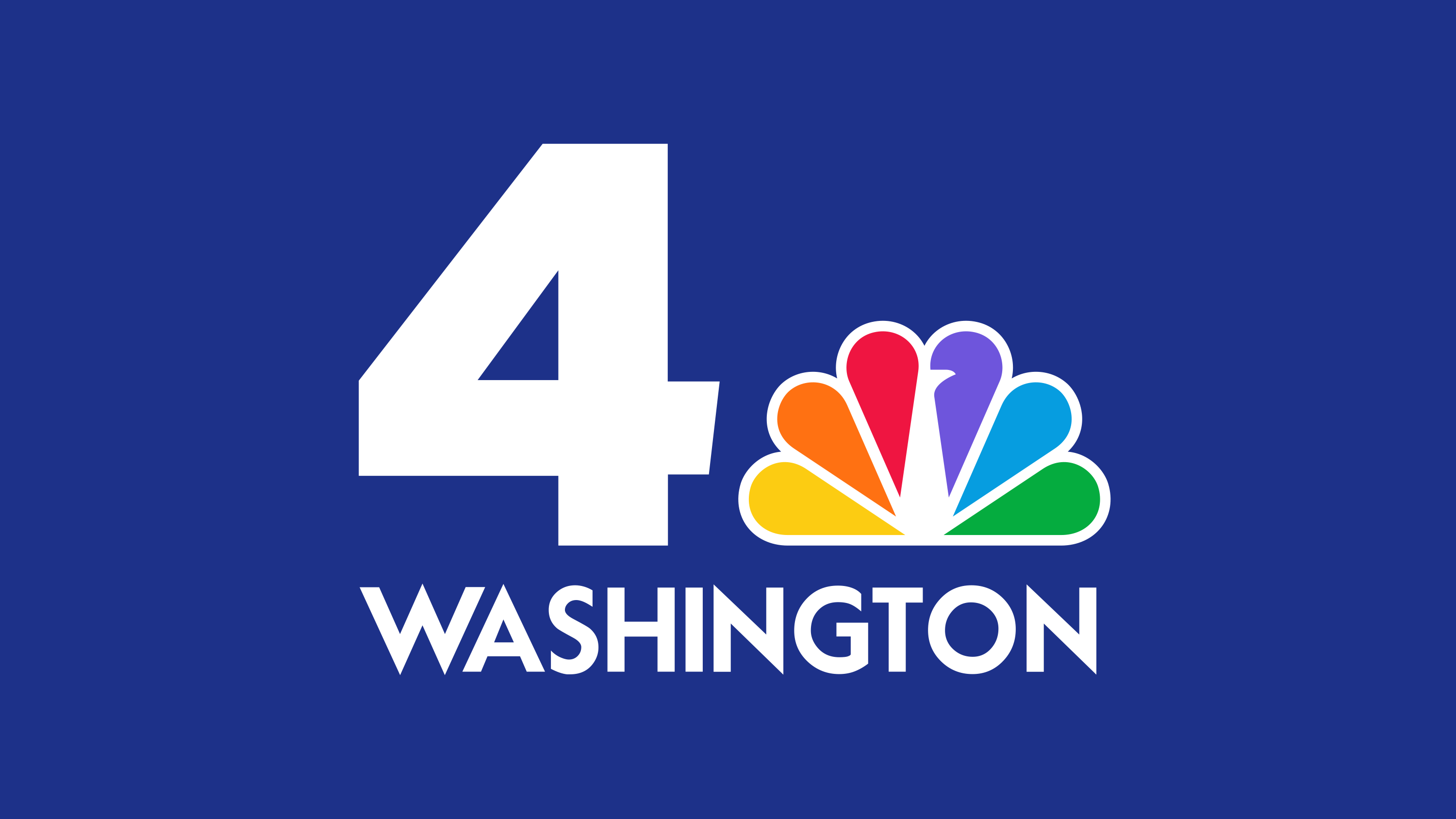
Harry Jaffe, a longtime chronicler of the people and politics of Washington, D.C., writes an opinion column for NBC Washington's First Read DMV blog.
What to Know
- Here's why selling the team would be a win-win-win for Dan Snyder, opinion columnist Harry Jaffe says.
- A close advisor to D.C.’s mayor and a D.C. Council member weighed in on what they think will be next for the team.
- There's no word yet on exactly what Snyder will do.
Remember how Dan Snyder reacted to demands he change the name of Washington, D.C.’s pro football franchise? “NEVER.”
He said in 2013, “We'll never change the name. It's that simple. Never — you can use caps."
Let’s take the owner as a man of his word. Never means never. But under pressure from financial backers, Snyder might be knuckling under to calls for change that have become more insistent amid a national movement for racial equality in the aftermath of the killing of George Floyd and too many others.
Friday’s statement from Snyder’s team says it will “undergo a thorough review of the team’s name.” Translation: Snyder is going back on his word and is being forced to ditch the name he’s loved all his life.
But wait. There’s another resolution. Why not take it all the way over the goal line and into the end zone, with an emphasis on “end”? Sell the franchise! End Snyder’s ownership. Two decades under Snyder’s control, with or without the noxious name, is enough.
Consider it a win-win-win. The owner gets to keep his word and never give in to social pressure or so-called political correctness. Snyder harvests a boodle of cash from the sale one of the planet’s most valuable sports franchises. The Washington region’s football fans get a fresh franchise with the chance for better-quality football.
“No way Dan Snyder would sell that team,” says Andy Ockershausen, veteran broadcasting executive and man-about-town. “He’s as interested in selling that team as he is in cutting off his arm.”
Indeed, when Snyder purchased the team in 1999 he called it “the most wonderful thing that's ever happened to me.”
The chances of him selling are probably worse at this moment because he won’t go out on his terms. He needs to feel in charge. So he changes the name, rebrands, makes a boatload of cash and then exits
Mike Wise, former Washington Post columnist
But for many local football fans who grew up adoring the local gridiron squads, it turned out to be the worst thing. Their message to Snyder during a typical beatdown last Nov. 17, when the New York Jets pasted the locals 37-17, was to sell the team.
The few fans who chose to show up at Fed Ex Field were reacting to two decades of mediocre football under Snyder’s reign. They endured a merry-go-round of coaches and quarterbacks. The record under Snyder of 149 wins against 189 losses was far from the glory days of Super Bowl victories, the last in 1992.
A Washington Post poll last year showed a paltry 13% of local fans chose the football team for their favorite local franchise, compared to 28% for the Washington Nationals.
Money talks for Snyder. He was adamant and stuck to his word to never change the name until a few financial backers said he should drop it. FedEx said Thursday that he should change the name. PepsiCo followed on Friday.
Money isn’t just talking to Snyder; it’s screaming “Sell!”
Snyder would come away with a profit that might even impress his friend and Dallas Cowboys owner Jerry Jones. At 34, Snyder purchased the team in 1999 for $800 million. Last year’s Forbes annual ranking of sports franchises put the local team’s value at $3.1 billion. Taking into consideration the costs of the sale, Snyder could come away with an estimated $2 billion.
I checked on Snyder’s interest in selling with team spokesmen Tony Wylie and Sean DiBarbieri but got no response.
Will he sell? Here was the best guess of Mike Wise, a former Washington Post columnist now working on a biography of Native American gold medalist Billy Mills.
“The chances of him selling are probably worse at this moment because he won’t go out on his terms. He needs to feel in charge. So he changes the name, rebrands, makes a boatload of cash and then exits,” he said.
That might be wishful thinking for some fans, but it’s a great idea, even for D.C. Council Member at Large Elissa Silverman.
“I don’t like Dan Snyder as an owner,” she says, adding that she’s not a fan of taxpayer dollars going to football stadiums. With the team in search of a new stadium, and negotiations under way for a site in the District, Silverman’s dislike of Snyder might be yet another reason for him to unload the team.
Here’s another.
“We’d prefer an owner who’s willing to have a collaborative relationship with the community,” says Mark Tuohey, a prominent local attorney and close advisor to D.C. Mayor Muriel Bowser. “Unlike other owners of principal sports franchises, like the Lerners and Ted Leonsis, Snyder has not been a very public member of the community.”
So call it a win-win-win-win if Snyder sells the team. The community could get a more publicly minded owner, with the bonus of a new, less racially charged name.
Harry Jaffe, a longtime chronicler of the people and politics of Washington, D.C., writes an opinion column for NBC Washington's First Read DMV blog.


